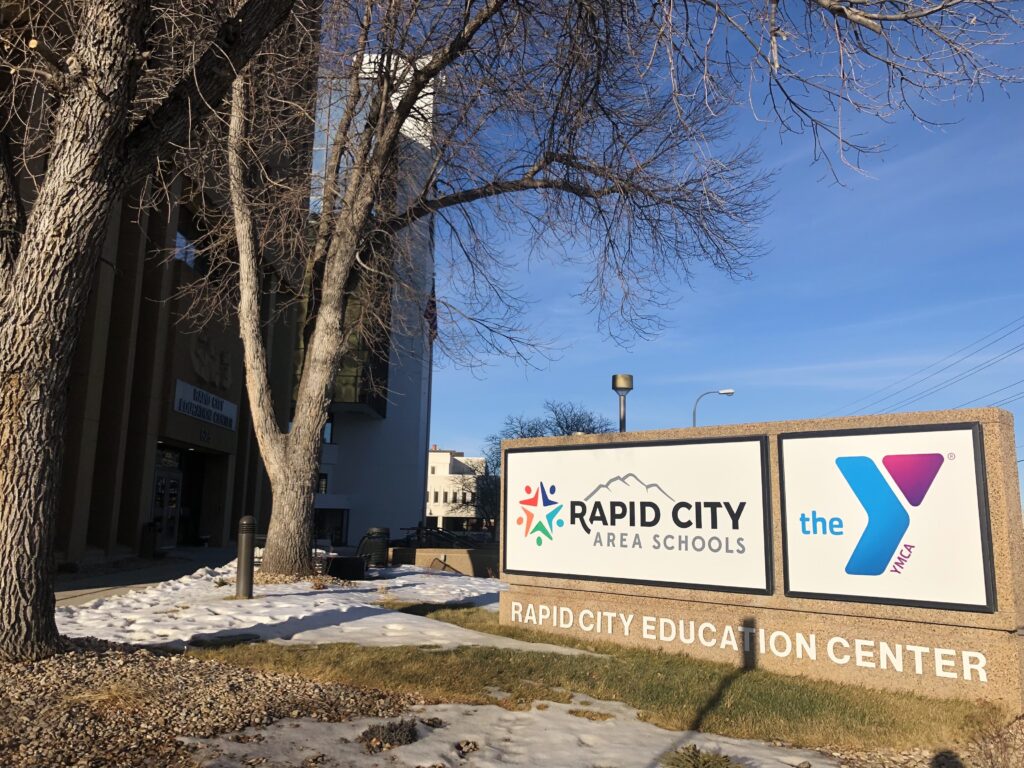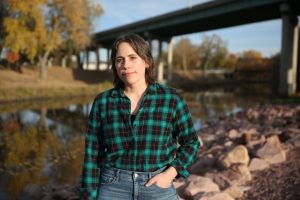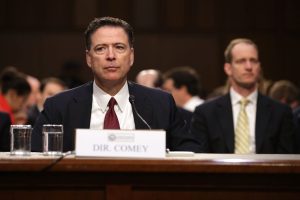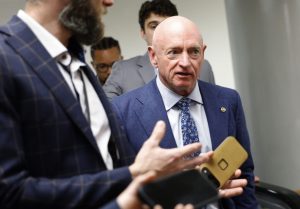The offices of the Rapid City Area Schools. (Kaylie Tupper/for South Dakota Searchlight)
A state commission on Monday cleared the Rapid City Area School Board of allegations that it violated state transparency laws in its handling of a former superintendent’s contract termination.
During a meeting in Pierre, the South Dakota Open Meetings Commission ruled against former Superintendent Nicole Swigart. The school board voted to terminate her contract in August 2024 after the U.S. Department of Education’s Office for Civil Rights issued a report containing insensitive remarks she allegedly made in reference to Native American students and families. Swigart denied making the statements.
Swigart filed an open meetings complaint last November alleging that the board committed four violations of state open-meetings laws in its handling of her personnel matter. The allegations included her claim that the board illegally made its decision about her in a closed-door, executive session before the board voted in public.
Open meetings laws specifically list discussions of “the qualifications, competence, performance, character or fitness of any public officer or employee” as a justifiable reason to conduct an executive session.
Commissioner Emily Sovell moved to dismiss the complaint, and fellow commissioners agreed the school board had not broken the law.
Sanitary district found in violation
In another case, the commission ruled that the Green Valley Sanitary District in Pennington County violated the state’s open meetings laws by failing to properly cite a legal reason before entering executive session and by improperly stopping a citizen from recording a public meeting last year.
Steve Myers filed the complaint. He told the commission that during a meeting on April 10, 2024, the board entered executive session without citing a law or qualifying reason, as required by state law. The motion simply stated that the board would discuss a complaint Myers had filed, which is not one of the allowable reasons under state law to turn a public meeting private.
Myers also said that at a May 8, 2024, meeting, the board violated state law that allows the public to record open meetings. Myers said he announced he was recording, but a board member told him to stop or the meeting would be adjourned.
Ty Daly, the sanitary district’s attorney, said the district’s board members complied with the law. He said the purpose of the April 10 executive session was to discuss pending or proposed litigation with legal counsel, which is an allowable purpose for an executive session.
He also said the board acted “in good faith” in asking Myers to stop recording.
“The purpose was to prevent disruption and avoid residents or the public being recorded without their permission,” he said.
Commissioners found that whatever the purpose for the executive session, the board had failed to meet the legal requirement that public bodies clearly state the reason for closing a meeting. They also found the May 8 incident violated open meeting laws because the disruption stemmed from the board’s decision to tell Myers to stop recording, not Myers’ recording itself.
The commission will issue written reprimands for the violations.
YOU MAKE OUR WORK POSSIBLE.





